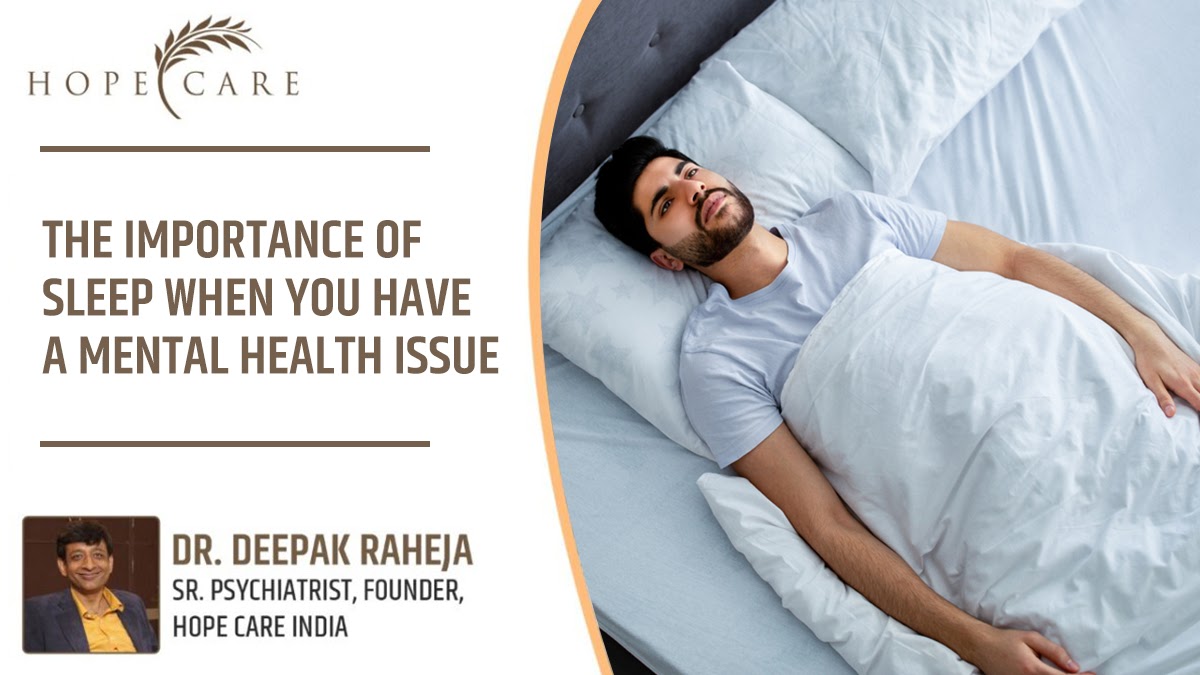Sleeping on time and getting a quality sleep is extremely important to your health and well-being. Sleep is also closely connected to your mental health, and a lack of sleep adversely impacts your psychological state. While it initially begins with irritation and perpetual insomnia, it could in no time turn to a severe case of insomnia, as people with mental health issues are more likely to suffer from insomnia. Keep reading to learn more about the relationship between sleep and mental health.
How Does Sleep Affect Mental Health?
Sleep conditions are a cause of certain psychiatric conditions, and a lack of sleep can also exacerbate the symptoms of several mental disorders. This is a complex relationship, where one thing impacts the other. While it is always advisable to seek the opinion of your doctor if you regularly face problems while falling or staying asleep, we will help you understand how sleep affects some mental health conditions.

1. Stress And Anxiety:
Almost everyone nowadays is dealing with stress and anxiety as it has been taking a toll on every mind. A night of disruptive sleep or a lack of it can cause an enormous amount of chemical imbalance in your brain, due to which it gets difficult to even cope up with minor stress. Sleep deprivation causes tiredness, which results in an increased level of production of cortisol – the hormone that creates feelings of anxiety. This leads to more difficulty in dealing with day-to-day tasks, therefore making them all the more frustrating and leaving you more short-tempered. Getting enough sleep is important, but the stress of not being able to get enough sleep makes sleep deprivation even worse. It is thus necessary to consult your doctor if you face a recurring problem of sleep deprivation.
2. Depression:

While insomnia and other sleeping disorders can be a result of depressions, recent research has implicated sleep deprivation in leading to depression. Those with sleeping disorders are twice at risk of developing depression than the general population. Research also suggests that treating insomnia at an early stage could prevent the onset of chronic depression. Therefore, it is important that you consult your doctor when you start noticing signs of insomnia.
3. ADHD:
Attention Deficit Hyperactivity Disorder, or ADHD, is extremely common, and affects around 6% of children between the ages of 6-17 years. Studies show how 25-55% of children with ADHD experience sleep disturbances, and disruption to sleep or a lack of it is a major contributor or symptom of this condition, and can also increase the severity of ADHD. The treatment of ADHD also assesses current sleeping patterns and habits in order to address the underlying sleep problems, as children with ADHD tend to suffer from other sleeping problems, such as difficulty falling or staying asleep, difficulty waking, sleep breathing issues, night waking, and daytime sleepiness.
4. Bipolar Disorder:
Bipolar disorder is characterized by alterations in mood, going from depressed to elevated in no time. Sleep problems, such as insomnia, irregular sleep-wake cycles, and nightmares are extremely common in those with bipolar disorder. Sleep changes can be a symptom of the condition, but sleep problems can also play a role in the course of the condition, treatment outcomes, and the individual’s overall quality of life.
This relationship between sleep and mental health is a complex and circular one, where the cause and the effect cannot be rigidly determined. Therefore, seeking expert opinion and taking professional help is the only way to tackle it.
Where To Seek Help?
HOPE CARE is a leading psychiatric centre and mental wellness organization that recognizes and provides for the mental health concerns in modern day living. Dr. Deepak Raheja and his team of professionals are the best counsellors in Delhi, who aim to solve all concerns of mental health with the right approach and accurate diagnosis. He seeks to help the society in areas of mental health and its treatment. They aim to completely annihilate from the minds of people the stigma attached to mental health by raising awareness around the issue.
For a detailed consultation, book an appointment today!

Hope Care established under the guidance of Dr. Deepak Raheja, is a Psychiatric Centre of excellence that endeavors to restore hope and well-being to individuals and families afflicted by mental ill-health through comprehensive treatment and rehabilitation services. Hopecare seeks to set benchmarks in innovative programs in treatment, care, and education.

